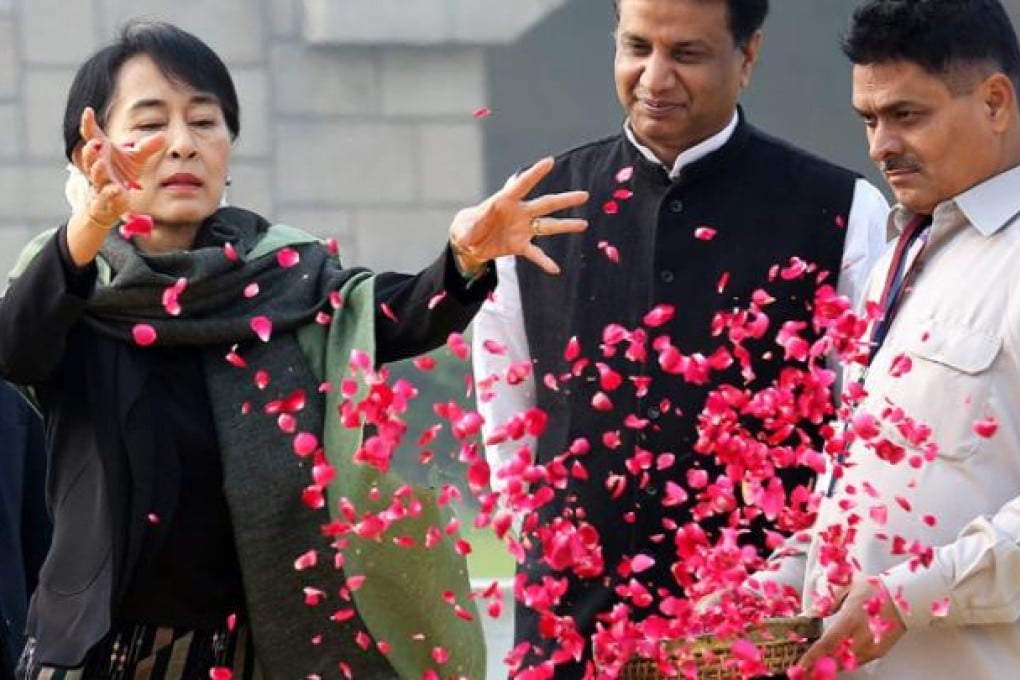
Myanmar opposition leader Aung San Suu Kyi met Prime Minister Manmohan Singh for talks in New Delhi on Wednesday, after warning India not to get carried away by reforms across its border.
Suu Kyi, who in the 1960s was a student in New Delhi where her mother served as an ambassador, is paying her first visit to India in 25 years – most of which were spent under military house arrest.
Her invitation is an attempt by Singh’s government to repair a damaged relationship with Suu Kyi, who was finally freed by the junta in 2010 and led her party to a landslide victory in parliamentary by-elections in April.
New Delhi was once one of her staunchest supporters, but changed tack and sought engagement with the junta in the mid-1990s – a move that the Nobel peace prize winner has acknowledged “saddened” her.
Singh visited Myanmar in May to try to strengthen trade links and counter the influence of regional rival China. The two governments signed 12 agreements covering an array of issues including security, trade and transport.
India shares a 1,640 kilometre border with its northeastern neighbour Myanmar and the two former British colonies have a long shared history.